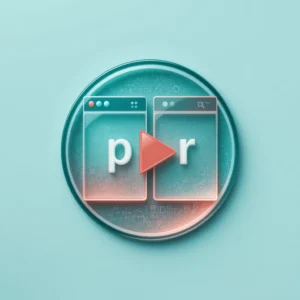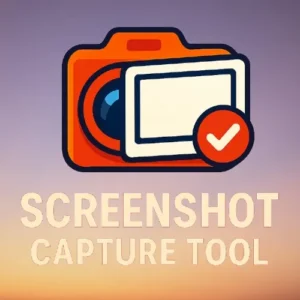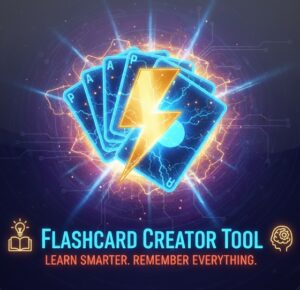Analytical Reasoning MCQs Test Tool
Analytical Reasoning MCQs Test Tool
Test your analytical reasoning skills with this interactive quiz. You will be presented with 5 random questions each time. Select your answer for each question and click 'Check Results' to see how you did. Good luck!
Analytical Reasoning MCQs Test Tool: Sharpen Your Logical Skills
Analytical reasoning is a cornerstone of cognitive development, playing a pivotal role in academic assessments, competitive exams, and professional decision-making. The Analytical Reasoning MCQs Test Tool offers an engaging, interactive platform to hone these skills through structured multiple-choice questions (MCQs). Designed for students, educators, and professionals, this tool delivers randomized quizzes that challenge users to analyze data, identify patterns, and draw logical conclusions. Whether preparing for exams like NTS, banking, or civil services, or simply enhancing critical thinking, this tool provides a seamless experience with instant feedback and customizable features. Available at Ahmad Free Tools, it stands out for its user-friendly interface and practical relevance. For complementary resources, explore additional practice at PakMCQs.
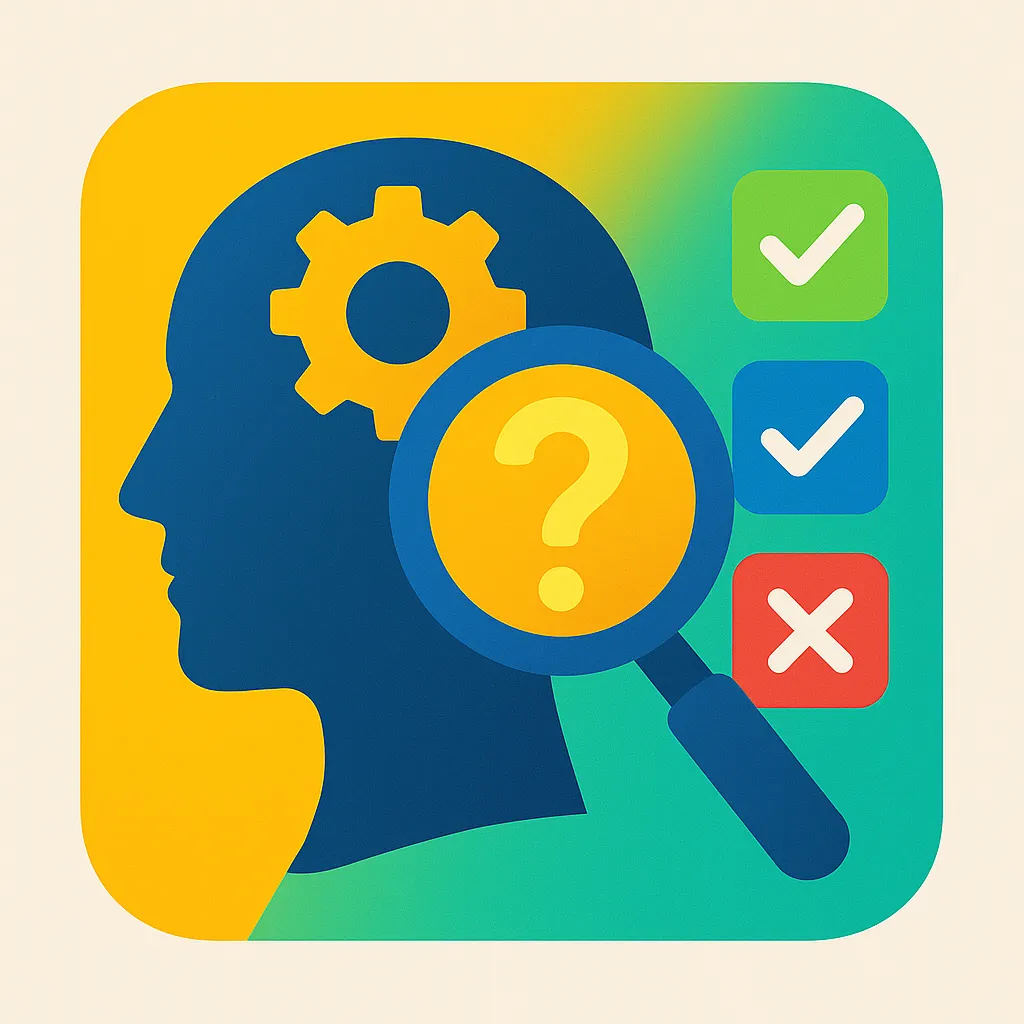
What Is an Analytical Reasoning MCQs Test Tool?
An Analytical Reasoning MCQs Test Tool is a digital platform designed to assess and improve logical and analytical thinking through multiple-choice questions. It presents users with scenarios requiring data analysis, pattern recognition, or logical deductions, often based on passages or conditions. For instance, questions might involve scheduling tasks, arranging sequences, or solving syllogisms. Each quiz typically includes five randomized questions drawn from a large database, ensuring variety and preventing rote memorization. This tool is ideal for students preparing for standardized tests, educators creating classroom assessments, or professionals refining decision-making skills. Its accessibility on platforms like Ahmad Free Tools makes it a go-to resource for self-paced learning.
Why Use an Analytical Reasoning MCQs Test Tool?
Using an Analytical Reasoning MCQs Test Tool offers numerous benefits for cognitive growth and exam preparation. It sharpens critical thinking by presenting diverse scenarios, such as arranging events chronologically or decoding complex patterns. Regular practice enhances pattern recognition, a skill crucial for exams like NTS or aptitude tests. The tool also builds confidence through measurable progress, with instant feedback clarifying mistakes and reinforcing correct logic. Unlike traditional study methods, it provides dynamic, randomized questions that mimic real test conditions, preparing users for unpredictability. Additionally, its free availability on platforms like Ahmad Free Tools ensures accessibility, making quality education available to all.
Key Features of an Effective Analytical Reasoning MCQs Test Tool
A robust Analytical Reasoning MCQs Test Tool is packed with features that elevate the learning experience beyond simple quizzes. Random question selection ensures fresh challenges each time, covering topics like logical sequences, syllogisms, and data interpretation. Instant results paired with detailed explanations help users understand their errors and learn correct approaches. Customizable difficulty levels—beginner, intermediate, and advanced—cater to diverse skill sets, allowing gradual progression. Themed categories focus on specific areas like direction sense or coding-decoding, enabling targeted practice. Mobile responsiveness ensures seamless use across devices, while progress tracking provides insights into improvement over time. For visual aids, pairing with tools like the Image Compressor Tool from Ahmad Free Tools can optimize diagrams for study materials.

Benefits for Students, Educators, and Professionals
The Analytical Reasoning MCQs Test Tool delivers tailored advantages for various users. Students benefit by mastering reasoning skills critical for competitive exams, with randomized quizzes simulating real test environments. Educators can create quick, engaging assessments without manual effort, using analytics to identify student weaknesses. Professionals in fields like management or data analysis maintain sharp decision-making skills through scenario-based practice. The tool’s ability to track progress motivates consistent practice, turning weak areas into strengths. Its cost-effective, often free nature democratizes access, while integration with tools like the Image Compressor Tool allows users to create compact visual aids for revision, enhancing learning efficiency.
How to Integrate the Tool into Your Study Routine
Maximizing the Analytical Reasoning MCQs Test Tool requires a strategic approach to study. Start by setting clear goals, such as mastering syllogisms or direction-based problems. Begin with beginner-level questions to build confidence before progressing to advanced ones. Dedicate 15-30 minutes daily to maintain consistency, as short, regular sessions enhance retention. After each quiz, review explanations to understand mistakes and note recurring errors. Supplement practice with external resources like PakMCQs for additional question banks. Use analytics to track weekly progress and adjust difficulty accordingly. For group study, share quizzes with peers to discuss rationales, and incorporate visual tools to create custom study aids, ensuring a well-rounded approach.
Types of Questions in an Analytical Reasoning MCQs Test Tool
The Analytical Reasoning MCQs Test Tool covers a wide range of question types to test various facets of reasoning. Common categories include:
- Logical Sequences: Arranging events, numbers, or words in a logical order, e.g., chronological stages of a process.
- Syllogisms: Drawing conclusions from given statements, like “All A are B; some B are C.”
- Direction Sense: Determining final positions after a series of movements, e.g., “Walk 10km south, then 5km east.”
- Coding-Decoding: Deciphering patterns in coded messages, such as “CAT coded as DBU.”
- Data Interpretation: Analyzing tables, graphs, or charts to answer questions, e.g., calculating percentage increases.
- Puzzles: Solving scheduling or grouping problems, like assigning pilots to flights with constraints.
- Analogies: Identifying relationships between pairs, e.g., “Pen is to paper as knife is to kitchen.”
These diverse types ensure comprehensive skill development, with resources like PakMCQs offering additional practice.
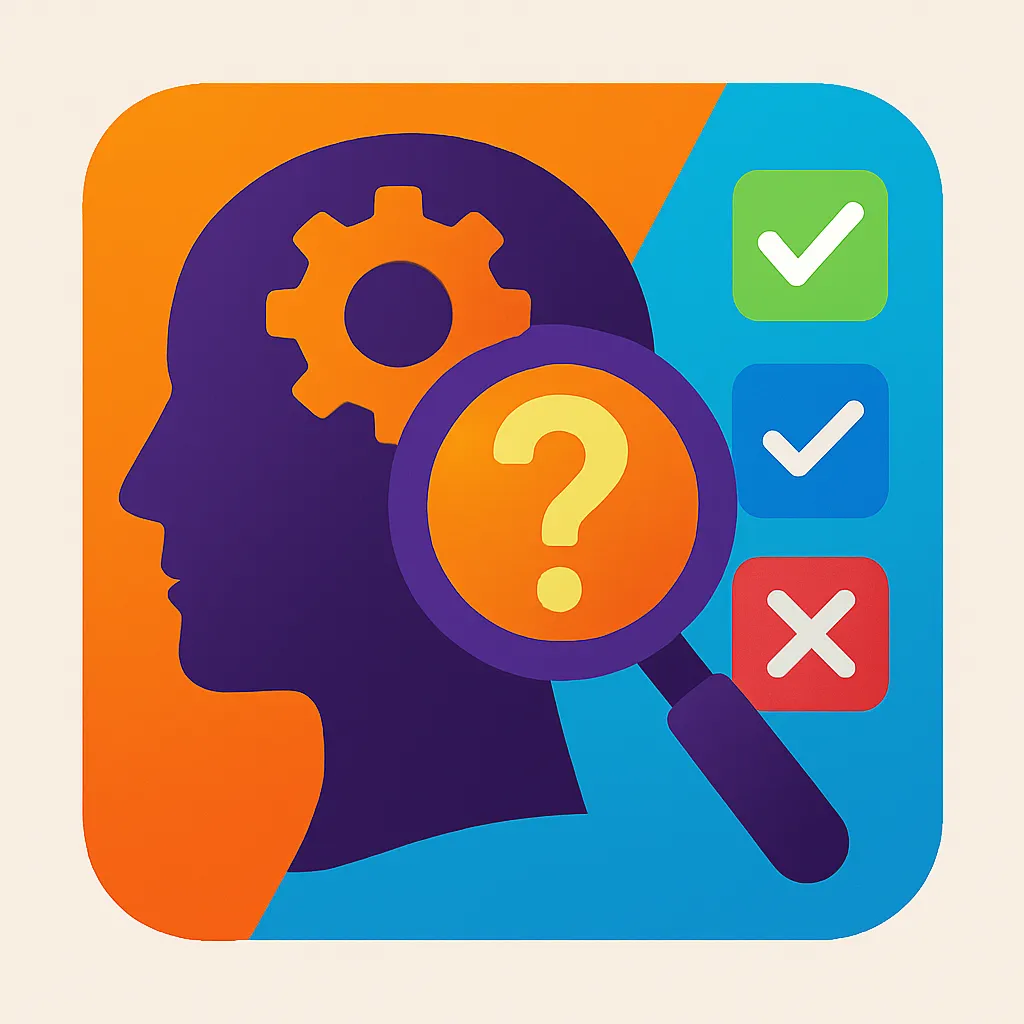
Sample Analytical Reasoning MCQs and Tool Functionality
To illustrate, consider a sample question from an Analytical Reasoning MCQs Test Tool: “A supervisor schedules pilots for flights from City X to City Y, with rules: only W, X, Y fly mornings; only V, X, Z fly afternoons; no pilot flies twice daily or on consecutive days; X flies Wednesday morning; Z flies Tuesday afternoon. What must be true?” Options might include “W flies Monday morning” or “Z flies Thursday afternoon.” The tool checks the answer, provides the correct option (e.g., “Z flies Thursday afternoon”), and explains the reasoning based on the rules. Another example: “Complete the series: 2, 5, 11, 23, ?” The tool reveals the answer (44) and explains the pattern (doubling plus increments). This feedback loop enhances understanding and retention.
Comparing the Tool with Traditional Study Methods
Traditional study methods, such as textbooks and flashcards, remain valuable but lack the interactivity of an Analytical Reasoning MCQs Test Tool. Books offer static content, while the tool generates random questions, reducing memorization bias. It promotes active recall through quizzes, proven to boost retention compared to passive reading. Time efficiency is another advantage, as quick sessions fit busy schedules, unlike lengthy textbook reviews. However, combining both methods is ideal—use books for theoretical foundations and the tool for practical application. Digital tracking provides insights absent in manual methods, and free access contrasts with costly coaching materials. For visual integration, compress textbook diagrams using the Image Compressor Tool for digital study aids.
Enhancing Learning with Complementary Tools
The Analytical Reasoning MCQs Test Tool shines when paired with other educational resources. For instance, use vocabulary builders to clarify terms in complex puzzles, ensuring precise understanding. Create visual quizzes with the Image Compressor Tool to generate compact, shareable images of questions. External question banks like PakMCQs provide additional practice to diversify exposure. For visual learners, crop diagrams from educational sites to illustrate sequences, enhancing comprehension. Online forums can discuss tool-generated questions, fostering collaborative learning. In classrooms, project quizzes for group discussions, creating a holistic learning ecosystem that maximizes skill development.
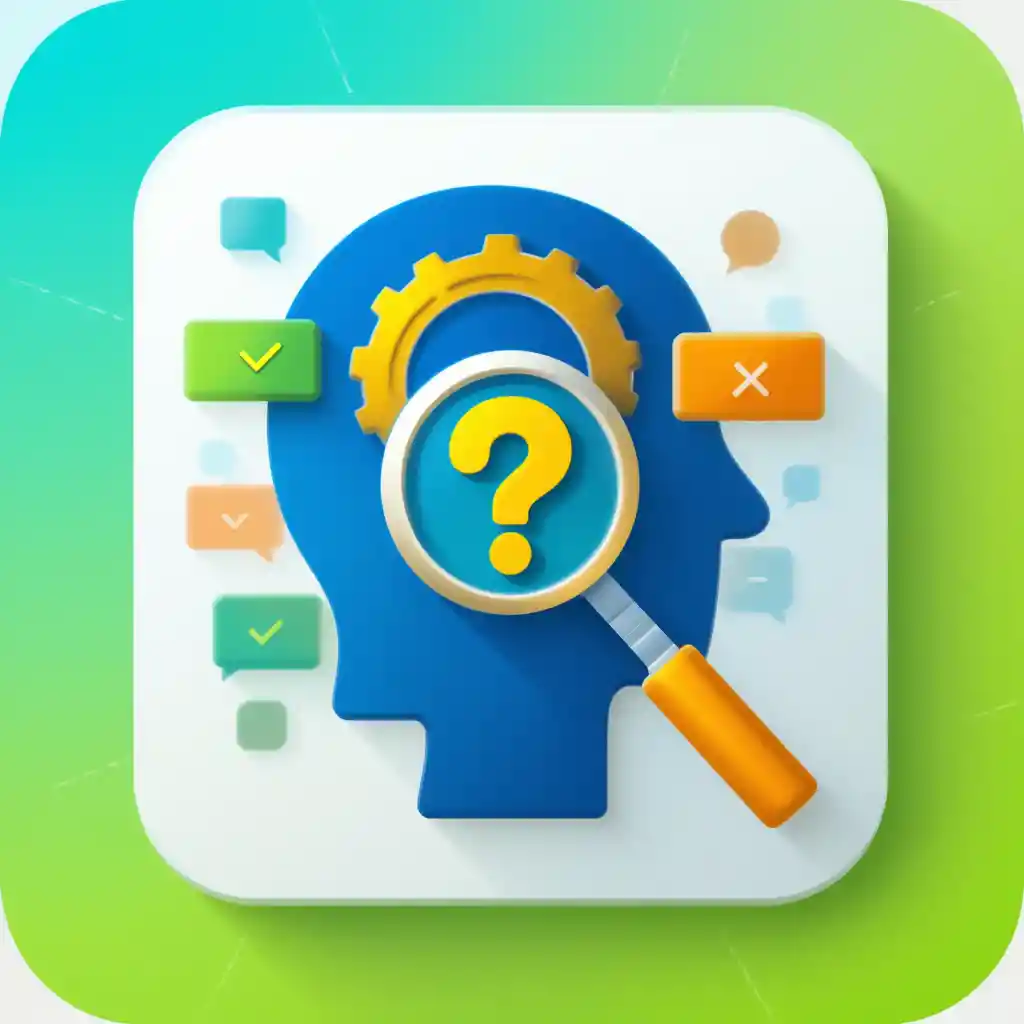
Overcoming Challenges in Analytical Reasoning
Analytical reasoning can be challenging due to complex patterns, time constraints, or topic variety. The Analytical Reasoning MCQs Test Tool addresses these hurdles effectively. Categorized quizzes allow focused practice on specific areas, reducing overwhelm. Detailed explanations clarify misunderstood patterns, while timed modes build speed for exams. Random question generation ensures variety, preventing monotony. Analytics track progress, identifying weak spots, and gamified elements like scores maintain motivation. For persistent challenges, supplement with visual aids created via tools like the Image Compressor Tool, which can optimize diagrams for better understanding, making reasoning more accessible.
Future Trends in Analytical Reasoning MCQs Test Tools
The future of the Analytical Reasoning MCQs Test Tool is promising, with technology driving innovation. AI integration could personalize quizzes, adjusting difficulty based on user performance. Virtual reality might offer immersive scenarios, like solving scheduling puzzles in a simulated environment. Mobile apps with offline access will enhance portability, while collaborative features could enable real-time group solving. Advanced analytics may predict exam performance, guiding study plans. Augmented reality could visualize patterns, aiding spatial reasoning. These advancements will make tools more engaging and effective. Until then, platforms like Ahmad Free Tools provide robust, accessible practice.
Creating Custom Analytical Reasoning MCQs
Crafting your own questions deepens understanding of analytical reasoning. Start by identifying core concepts like sequences or syllogisms. Write clear question stems with logical options, ensuring one correct answer. Include detailed explanations to reinforce learning. Use tools like the Image Compressor Tool to create visual versions of questions for sharing or flashcards. Balance difficulty levels to challenge without overwhelming. Test questions with peers for feedback, refining clarity and logic. This process not only enhances reasoning skills but also fosters creativity in problem-solving, complementing the Analytical Reasoning MCQs Test Tool.
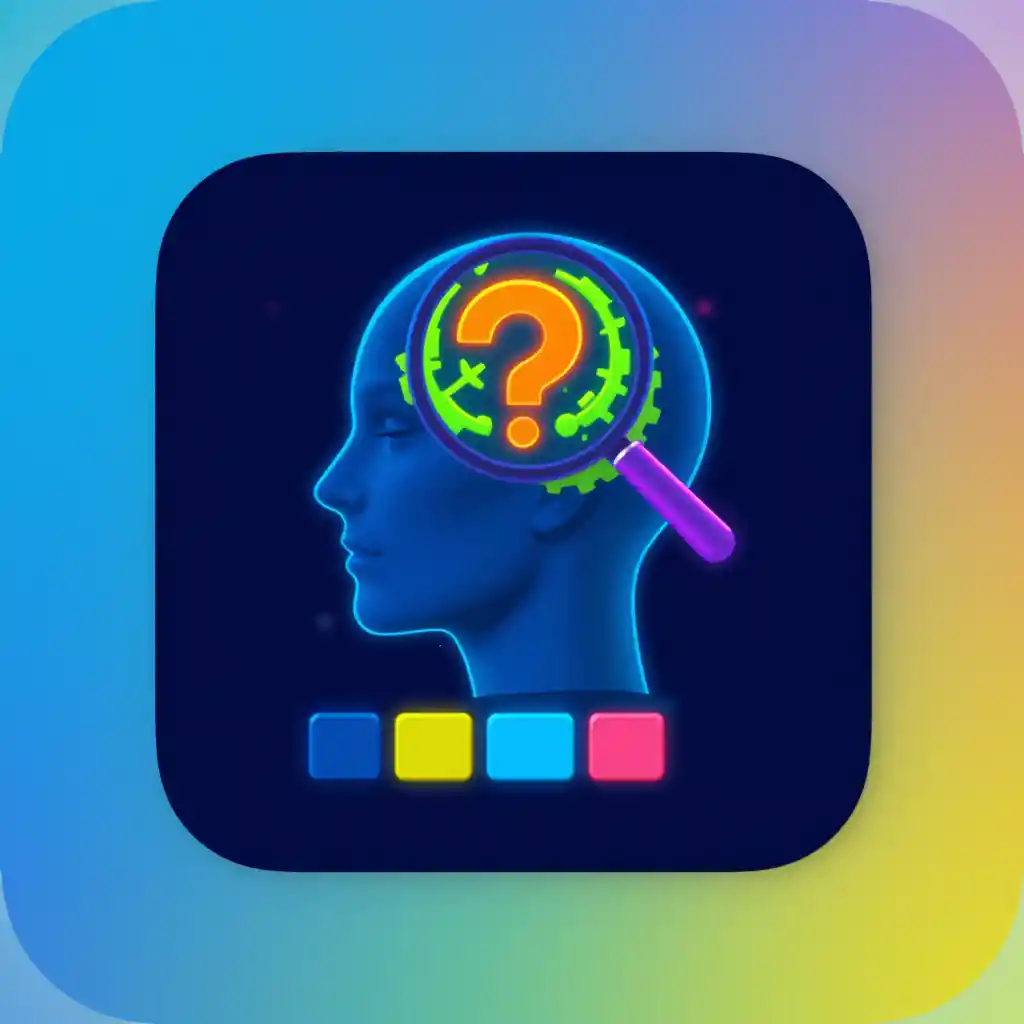
Success Stories with the Tool
The Analytical Reasoning MCQs Test Tool has transformed learning for many. A student preparing for NTS exams improved their score by 35% after consistent practice, mastering scheduling puzzles. An educator integrated the tool into lessons, boosting student engagement and test performance through interactive quizzes. A project manager used it to refine decision-making, applying logical principles to workplace scenarios. These cases highlight the tool’s versatility across contexts. By pairing with resources like PakMCQs, users can amplify their success, turning practice into measurable progress.
Practical Tips for Maximizing Tool Usage
To fully leverage the Analytical Reasoning MCQs Test Tool, adopt a structured approach. Set specific goals, like improving data interpretation skills. Practice daily, starting with easier questions to build confidence. Review feedback meticulously to understand errors. Simulate exam conditions with timed quizzes to enhance speed. Combine with external resources like PakMCQs for variety. Use analytics to monitor progress and adjust focus areas. For visual learners, create study aids with the Image Compressor Tool to optimize diagrams. Engage in group discussions to deepen understanding, ensuring consistent improvement.
Conclusion
The Analytical Reasoning MCQs Test Tool is a powerful resource for developing critical thinking and analytical skills. Its interactive quizzes, random question generation, and detailed feedback make it ideal for students, educators, and professionals. By addressing challenges like pattern recognition and time management, it prepares users for exams and real-world problem-solving. Integration with tools like the Image Compressor Tool and resources like PakMCQs creates a comprehensive learning ecosystem. Start using this tool today at Ahmad Free Tools to unlock your analytical potential and achieve your goals.
Explore More Tech Solutions and Reviews
For those looking to enhance their digital workflows or upgrade their tech setups, Find Tech Today offers a wealth of resources. Discover how to optimize images with the Image to FLIF Converter Tool for superior compression or create game-ready textures with the Convert Any Image to VTF Format guide. Improve your workspace ergonomics with the Laptop Stand for Desk Adjustable Riser Review or unleash your creativity with the Memoking T02 Sticker Printer Review. Gamers can dive into the Sceptre Curved 24-inch Gaming Monitor Review for an affordable, immersive display, while professionals can elevate virtual meetings with the EMEET C960 4K Webcam Review. Visit Find Tech Today for these and more insightful tech guides!

